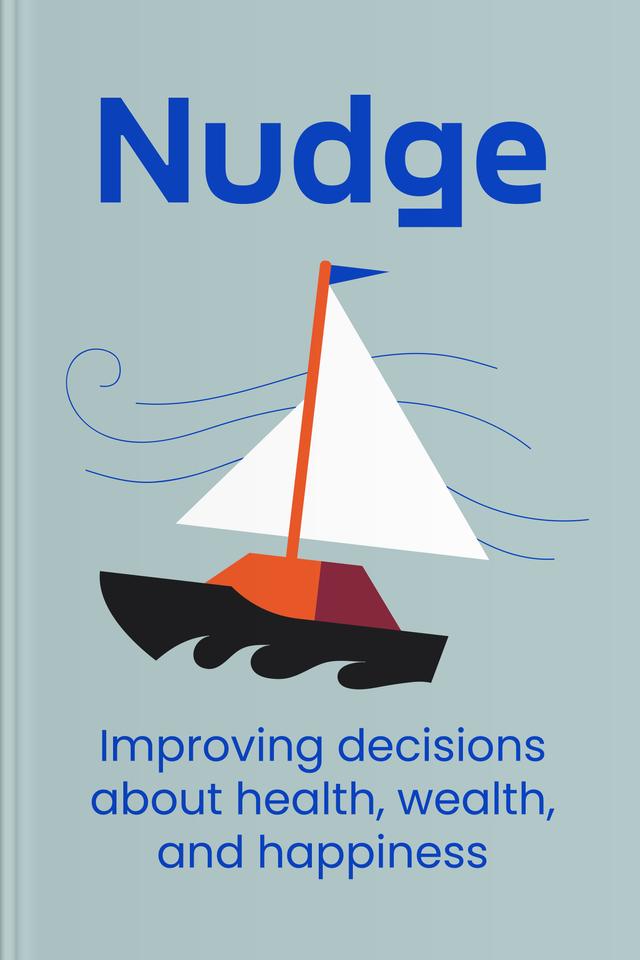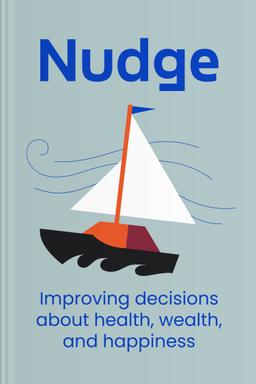You’ll learn
- The power of guidance
- To avoid predictable mistakes
- About healthy feedback culture
- How to face complex decisions
- Different benefits of cognitive biases
Protect the world’s peace. Donate to support Ukraine

first KEY POINT
A nudge refers to any factor that wields substantial influence over human behavior. It is a technique used by choice architects in order to easily alter someone’s decision without underrepresenting the choices available.In many forms, they work on humans — a real species that predictably makes mistakes — even though it would be ignored by Econs — an imaginary species that can’t be systematically wrong in a predictable setting.Rational Econs respond to incentives, which means if the government taxes sweets, they will buy fewer sweets. However, they don't care about positive reinforcements, considering them irrelevant. While incentives do play a role in shaping human behavior, it's the subtle nudges that influence their decisions.
By effectively using the right mix of incentives and nudges, we can enhance our ability to improve the lives of others and tackle many of society's major issues, all while respecting everyone's freedom to choose.Excited to learn more? Keep reading to unlock the transformative power of the Nudge Theory and make a meaningful contribution to social well-being.
second KEY POINT
The primary responsibility of a choice architect is to structure the environment in which individuals make decisions. Many people are choice architects without realizing it. You are most likely one, too, whether your job is to design ballots for voters to choose desired candidates, or you’re a doctor who must prescribe alternative treatments available to patients, an urban planner, a restaurant owner, or a parent who deeply cares for your child's future.Reflect on your role as a choice architect. Are you shaping your life to align with your goals and values? Are you making informed decisions about savings, retirement planning, and other crucial aspects of your life? It’s time to get serious and get your life in order, one choice at a time.

Continue reading with Headway app
Continue readingfirst KEY POINT
second KEY POINT
third KEY POINT
fourth KEY POINT
fifth KEY POINT